Natural Birth 101: What It Is, Why You’d Want One, and How to Make It Happen
When a woman hears the term natural birth, many words, images, thoughts, and emotions come to mind. For better or worse, from when she was a little girl until now she has been gathering information that has shaped her beliefs about giving birth.
When she nears the childbearing year, it’s pretty common to begin questioning the ideas she’s gathered thus far. She may even find herself asking, “Does this idea about birth serve me today? Going forward, is this belief about natural birth helping me move towards where I want to be as a mother?”
Our thoughts, attitudes, and beliefs shape who we are, the choices we make, and how we treat other people. Which brings me to my next point.
What Does Natural Birth Mean?
In my experience, natural birth can be defined the following ways.
- A low tech vaginal delivery with minimal or no use of pain medication.
- A euphemism for a vaginal delivery with or without medical intervention and pain medication.
(In this post I use the term natural birth in context of the first definition. Most women that find this page are looking for information about giving birth without the use of pain medication. I hope this post points them in that direction.)
DISCLAIMER: Succeeding at a natural birth is not what women should be basing their worth on as a mother or human being. This way of thinking is extremely dangerous. For example, if a woman thinks she is a good mom because she gave birth without pain medication, I hope she sees this as a red flag and begins to compassionately question her way of thinking. Similarily, if a woman desired a natural birth but didn’t have one, believes she is a failure, I hope she recognizes this flawed thinking as well. Sure, we have ideals we strive towards – they are good and necessary things! However, our performance or experiences do not dictate who we are or our worth. No matter what happens when we give birth, we are always worthy of love and belonging.
That being said, if you had a natural birth and want to label it as such, go for it. It doesn’t really matter if it matches up with my or another woman’s definition of a natural birth. You do you. For example, some may disagree with me that my third birth was natural because I used Pitocin, however, I label it as a natural birth. What I think and feel about my birth experience matters more than any spectator’s opinion.
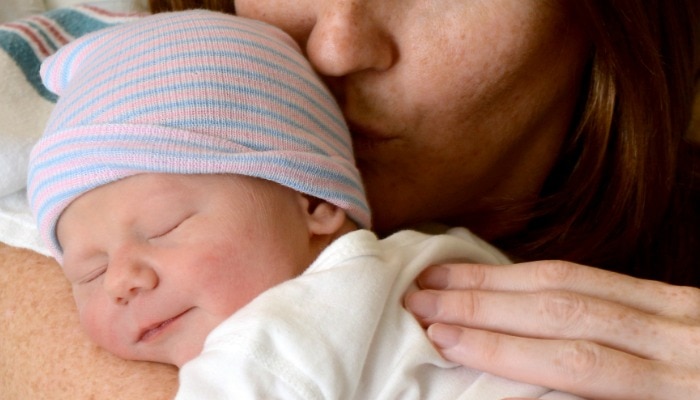
Benefits of Natural Birth
The idea that a woman would purposefully choose a natural childbirth may seem illogical to those that have not investigated the subject closely. On the surface, it doesn’t make sense to not use the “get out of jail free” card, if you know what I mean.
However, looking closely at what goes along with an epidural will give us a better idea of the benefits of going without (choosing a natural birth). An epidural increases the chance of the following (SOURCE).
- vacuum or forceps assisted delivery
- low blood pressure
- fever
- urinary retention (inability to empty the bladder)
- longer pushing stage
- the administration of pitocin (which then increases the risk of postpartum hemorrhage)
- cesarean birth for fetal distress
The experiences of women that choose immersion in water, a common method of pain management with non-pharmacological births, tell us even more regarding the benefits of a natural birth (SOURCE).
- less use of epidurals
- shorter first stage of labor
- increased satisfaction with the birth experience
Also, women choosing a natural birth tend to choose upright laboring positions for comfort and pain relief. Women that choose high tech births or pain medication, for the mother’s safety or the efficacy of the medication, are more often than not, lying down. Laboring in an upright position has benefits as well (SOURCE).
- shorter first stage of labor (an hour shorter on average!)
- less use of epidurals
The benefits of a natural birth include a faster, safer, healthier, more satisfying, and less complicated birth. It makes sense that a natural birth is an attractive option to many women.
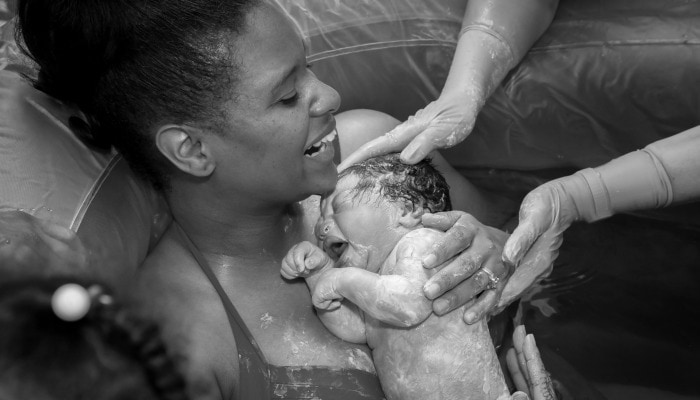
What Does Natural Birth Feel Like?
Now that we better understand the logic behind a woman’s choice to give birth naturally, very pertinent and personal questions come next.
By choosing to give birth without pain medication, what exactly are we signing ourselves up for? What is the natural birth process and what does natural birth feel like?
What is the Natural Birth Process?
If you are wondering what labor will be like, check out my post called the doula’s guide to the stages of labor! The following is an excerpt from that article.
Stage 1
The first of three stages in the stages of labor is devoted to powerful contractions that open the cervix to 10 cm but also position the baby in the best position for the next stage (pushing and the birth of the baby).
Stage 1 is also known as labor.
Stage one can be further broken down into three sections – early labor, active labor and transition.
Early Labor
Early labor, one of the longest parts of the stages of labor, is when your contractions are further apart, perhaps 5-7 minutes apart. At this point contractions are around 30 seconds long. Contractions are mild, and women are typically able to talk and walk throughout. Besides contractions, many other signs of labor are typically observed. (This part of labor is different than Braxton Hicks contractions!)
The cervix is usually dilated less than six centimeters.
One of the best things to do in early labor to cope is to rest and pretend that nothing is happening. In fact, I often say sleeping is the secret to coping through early labor.
Active Labor
Active labor is when the cervix has opened to 6 centimeters (give or take), contractions are around 3-5 minutes apart and each contraction is about 60 seconds long. Timing contractions is helpful to determine when to go to the hospital. At this point many women head to the hospital for labor.
At this point, contractions are more intense and a woman can no longer walk and talk during contractions. Between contractions, she may still be her normal self and able to relax. During contractions, however, all her focus and energy has gone within to work through each wave that comes.
For a long list of symptoms of active labor, but even better – ways to cope through it all, check out my post Active Labor: How to Cope, When to Go and More!
Transition
Transition is the shortest portion of stage 1, but often the most challenging. Contractions are around 90 seconds long, 2-3 minutes apart and the cervix is 8-10 cm dilated.
Typically, transition is when women “give up”, ask for epidurals and say “I can’t do this anymore.” Birth plans fly out the window, and women look for a way out. Women feel hot, cold, sweaty, nauseous and may even throw up.
At this point, what may have been working is absolutely not working anymore which means a woman’s support team needs to step up their game.
For a more detailed post and MUST READ information about transition and how to cope, check out my post called how to get through transition without an epidural.
Seriously… read it!
(To read more about the next stages (stage 2 and 3) head on over and continue to read The Doula’s Guide to the Stages of Labor.)

How Painful is a Natural Birth? What Do Contractions Feel Like?
Now that we have a better idea of how birth unfolds, let’s dive in a little bit deeper and talk about the pain of natural childbirth. A great place to start is to describe what labor contractions feel like.
One of the reasons it is difficult to answer the question what do contractions feel like is because the sensation of contractions is perceived differently for each individual. Even more confusing is that each individual woman may have different experiences as to what her contractions felt like for each one of her births.
If I were to explain what contractions feel like to a person that has never experienced menstrual cramps, this is what I would say.
“Contractions feel similar to the abdominal cramping you get with bad diarrhea, that rhythmically come and go, strengthening in intensity and eventually become longer, closer together and more intense/painful than you thought possible.”
These are some other words and phrases women have used to describe what contractions feel like.
- Abdominal cramping due to diarrhea
- Like a vice squeezing you
- A building of intensity and then letting go
- Cramp, wave, build, release
- Intense and/or bad period cramps
- Pain deep in the pelvis
- Pressure in the pelvis
- Pressure in the back
- Waves of tension in the body that gradually build up
- Tightening and burning in the lower abdomen
- Intestinal and menstrual cramps
- Like something huge is forcing the hips apart
- More of a pressure rather than a stabbing or an aching pain
Contractions in Early Labor, Active Labor and Transition
In early labor some women experience pain and pressure in their back, or in the lower abdomen, and some experience both. Some women describe early labor contractions like mild to moderate period cramps.
As labor progresses many women report the same sensations from early labor, just stronger, longer and closer together. Also, as labor progresses she may also experience pressure in the pelvis and hips.
During transition contractions feel the same as before, just more intense. If she was feeling back pain, it’s more intense than before. If she was feeling pressure in the pelvis, it’s greater now. If she was feeling all the pain and intensity in the front of the belly, it’s just that much more intense.
At this point, the intensity of contractions is overwhelming and most women need more support.
- Instead of completely going away contractions sometimes “double peak”
- Contractions increase when changing positions
- Because of this she may be afraid to move or change positions
During transition I often felt like something wasn’t working correctly. It seemed like things were hurting far worse than they should and that I wasn’t progressing quickly enough. The cost was far outweighing the perceived benefit.
I found it helpful for people to remind me that things were progressing normally, and in fact they weren’t even going slowly. When you’re in labor it is hard to have an accurate sense of time. Reminders and encouragement are so helpful.
To read more in more detail about what contractions feel like, head on over here for the full report.
Is Natural Birth Hard?
Yep, natural birth is hard. Labor is hard work, it hurts, but you can do it.
Giving birth to my children is one of the hardest things I’ve ever done but completely and totally worth it.
- If you’re looking for natural birth stories to read, here’s my first birth story (birth center).
- Here’s my second (home waterbirth).
- And my grand finale, a homebirth transfer to the hospital extravaganza.

How to Prepare for a Natural Birth
In my experience, wishing or hoping for a natural birth is less effective than planning for a natural birth. Most women need to actively work towards achieving a natural birth, especially when birthing in a hospital.
Can I Have a Natural Birth Without Classes?
Yes. Women can absolutely have a natural birth without classes.
Do I recommend planning for a natural birth without classes? No.
Don’t take my word for it! Head on over here to read the reviews from some of the women that have taken my childbirth classes. Scroll allllll the way down.
Can I Have a Natural Birth Without a Doula?
Yes. Women can absolutely have a natural birth without a doula.
Do I recommend planning for a natural birth without a doula? No, especially if you’re planning to give birth in a hospital.
A 2017 study showed that women receiving continuous support (a doula) were (SOURCE):
- less likely to use drugs or epidurals
- more likely to have a vaginal birth
- more likely to experience a shorter labor
- less likely to have a cesarean birth
- less likely to need a vacuum or forceps delivery
- more satisfied with their birth experiences
This research study even showed the babies born with mothers receiving support from a doula had better five minute apgar scores. How cool is that?!
Can I Have a Natural Birth in a Hospital?
Yes. Women can absolutely have a natural birth in a hospital. In fact, most hospital births I attend as a doula are natural! That being said, however, most hospital births are not natural.
The reason why most of the hospital births I attend are unmedicated is because they have planned for a natural birth including hiring a doula to help make it happen.
In my experience, to increase the chances of having a natural birth in a hospital a quality care provider, childbirth class, and doula are usually involved.
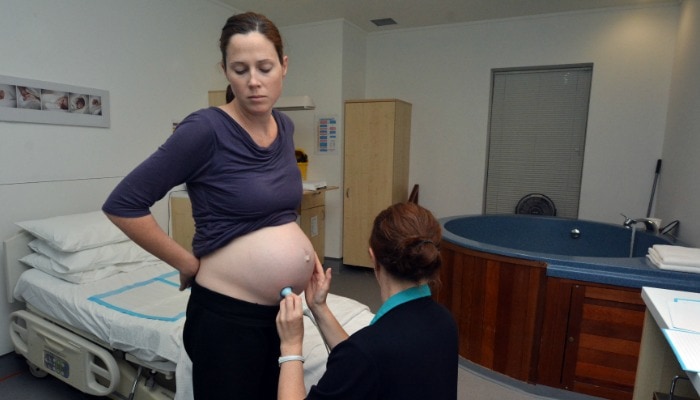
Can I Have a Natural Birth Without Tearing?
Yes. Women can absolutely have a natural birth without tearing. In my experience, I find that unmedicated women (that are not numb) have more ability to push in ways that decrease their chance of tearing.
The semi-reclined lithotomy position is what most women use (with epidurals) when pushing at hospital births. Despite the convenience this position offers care providers, it’s one of the more common mistakes that don’t actually prevent tearing.
To read an in-depth article about how to prevent tearing at birth, head on over here.
Can I Have a Natural Birth After a Cesarean?
Yes.
However, there are many things to consider when planning a vaginal birth after cesarean (VBAC). Planning for a VBAC is a significant journey that requires
- forethought
- planning
- a woman to find her voice and
- have it be heard.
- First, it’s important to assess what resources your particular community has. For example, are there care providers in your area that support a VBAC? Is there a local chapter ICAN meeting to attend?
- Second, it’s important to become educated on all aspects of VBAC birth. Check out this VBAC book list to get started.
- Third, check out these 10 tips for a successful VBAC that will help you to feel more prepared, confident and emotionally present as you enter your birth experience.
Can I Have a Natural Birth With Pitocin?
Yes.
However, the odds are stacked against you.
For most women, the contractions caused by the synthetic hormone Pitocin are longer, stronger, and closer together than the contractions caused by oxytocin. Also, the body does not release the pain coping hormones endorphins in the same way, which leaves a woman with more difficult contractions and less ability to cope.
This is where having taken a quality childbirth class, hired an amazing care provider along with the support of a fabulous doula are invaluable!
(I had a natural birth with Pitocin and it was one of the most difficult things I’ve ever done. To read my account of the whole ordeal, head on over to Mercy’s birth story.)

Tips for a Natural Birth Without Fear
While observing a local childbirth class this past weekend, I was reminded of how it is somewhat normal to be fearful, apprehensive and squeamish when it comes to childbirth.
I actually find this quite ironic considering women’s lib – women are strong, women can achieve whatever they wish, etc.
Our culture and family teach that women can do anything they want because they are smart and strong, but when it comes to childbirth things are different.
“Hush, hush, let’s not talk about that.”
“That’s so gross what your body does.”
“Your body can’t push out a baby that big through something so small.”
“Why would you want to feel childbirth pain? Get an epidural.”
“You can’t give birth without an epidural.”
“Your baby is too big for a vaginal birth. You might need a cesarean section to get your baby out.”
All of these statements feed the fear which we have been taught –>> “You won’t be able to handle the pain of childbirth and your body is not designed to give birth.”
These statements are floating around the minds of MOST expecting moms.
If you think you might be one of the many fearful pregnant women of our culture, what are you to do? Is the fear and distrust so ingrained in you that nothing can be done? Absolutely not.
How to Give Birth Without Fear: Here are my suggestions on how to combat the conscious and sub-conscious learning that IS NOT WORKING FOR US.

Natural Birth Tips for Dads
In my years of birth work I have heard my fair share of golden nuggets said to laboring moms. Some things were truly golden nuggets – amazing, encouraging words spoken that were very helpful.
And some were the other kind of golden nugget, likely coming from a good place, but nonetheless, unhelpful. Read this blog post to learn all about the latter nuggets also known as things to NEVER say to a woman in labor.
10 Things to NEVER Say to a Woman in Labor
1. “You don’t have to be a hero.”
This is one of the most bothersome things on the list of things to never say to a woman in labor. If you take away one thing from this article, this is the one.
I have heard this phrase said to women in two scenarios. Scenario 1 is when a laboring woman is trying to decide whether or not to get an epidural and scenario 2 is after a laboring mom has received an epidural.
Scenario 1: If a woman is trying to make a rational and educated decision while in labor (a very difficult thing to do when in pain!) about whether or not to get an epidural (which is a big deal, by the way) by saying “you don’t have to be a hero” is playing to her emotions and vulnerability which isn’t fair. If she’s questioning this choice instead of immediately signing up for anesthesia, she likely has a reason for the hesitation. I guarantee she doesn’t want an unmedicated birth to become “a hero”. Maybe she was hoping for a natural birth, or wants to reduce the chance of further interventions like pitocin, or maybe she’s wanting the best start for her baby. I don’t know. But by saying “you don’t have to be a hero” to help her make a decision is basically blowing her off when she is in a very vulnerable position. It’s a low blow.
(To read things 2- 10 to not say to a woman in labor head on over here…)

Celebrities Who Have Had a Natural Birth
And just for fun, here’s a short list of celebrities who’ve had a natural birth.
- Ricki Lake
- Demi Moore
- Cindy Crawford
- Kourtney Kardashian
- Pamela Anderson
- Meryl Streep
- Joely Fisher
- Julianne Moore
- Jennifer Connelly
- Mayim Bialik
- Gisele Bundchen
- Alyson Hannigan
- Alanis Morissette
- Kelly Preston
- Lisa Bonet
- Maya Rudolph
- Erykah Badu
- Jeannie Gaffigan (Please watch this clip. It’s so, so funny)
Natural Birth 101: What It Is, Why You’d Want One, and How to Make It Happen
Birth is an experience a woman will remember for the rest of her life. Because birth is so profound and far reaching, it makes sense that women spend an incredible amount of time and energy to plan for a good experience – for herself, her partner, and baby.
The benefits of a natural birth include a faster, safer, healthier, more satisfying, and less complicated birth and can be a wonderful option for many women (including celebrities!).
Birth is hard work, it hurts but with good preparation and support is totally possible – no matter how things unfold. You can do it!
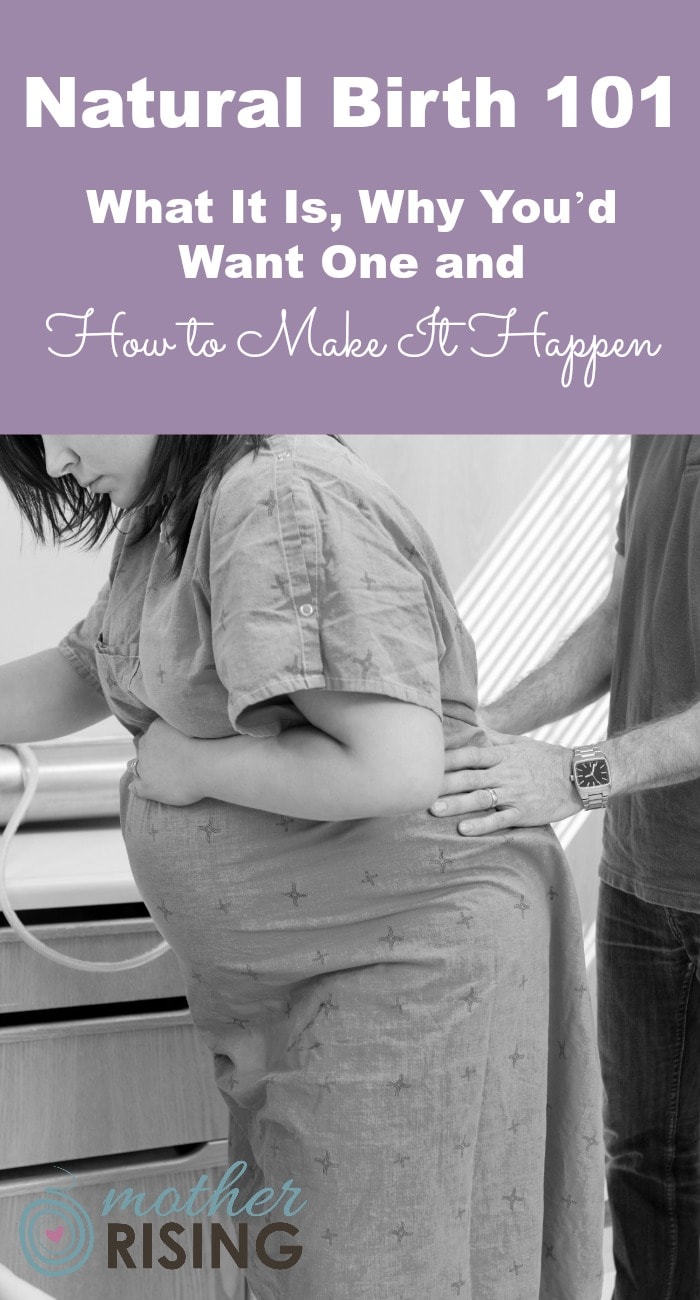
Leave a Comment
Leave a comment and let me know your experience with natural birth. I can’t wait to hear from you!
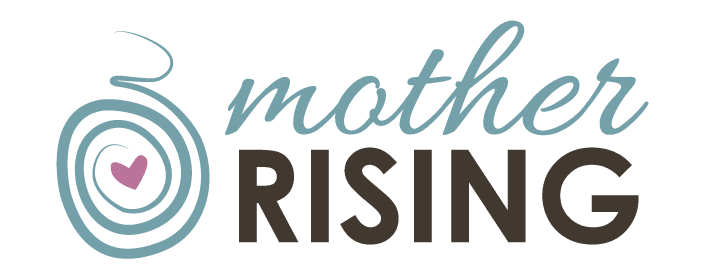
Michelle
Wednesday 10th of April 2019
I’d like to take a birthing class and hire a doula, but I live in Puerto Rico and my Spanish is limited I have searched for a doula/midwife, but I’ve been pretty unsuccessful so far. Do you have any suggestions?
Lindsey
Wednesday 10th of April 2019
Have you looked at www.doulamatch.com?
D's Mom
Wednesday 27th of March 2019
Thanks for this great article. I am 31 weeks pregnant with my 2nd child. I attempted a natural birth with my first and ended up getting an epidural (for a variety of reasons) and then having complications that led to a 5 day stay in the NICU for my son. I am struggling with anxiety about giving birth again, not being able to cope with the pain and having interventions that may increase risk to my baby. I just don't know what to do. I want to try for a natural birth again but I'm terrified.
Lindsey
Thursday 28th of March 2019
I say interview 2-3 doulas. That would be a good first step in gathering information. You can do it!